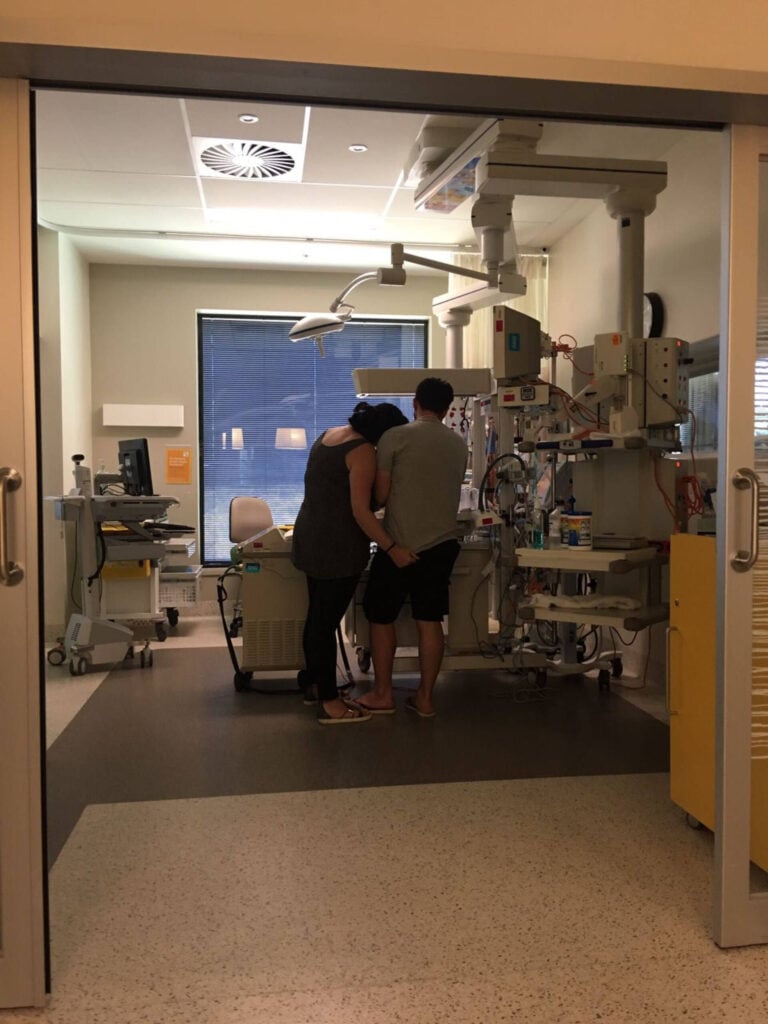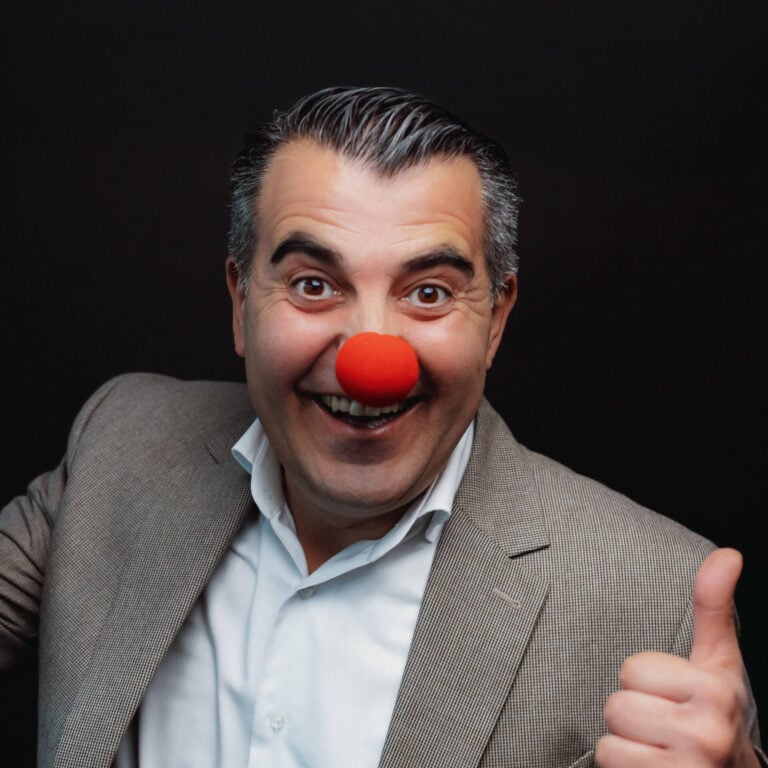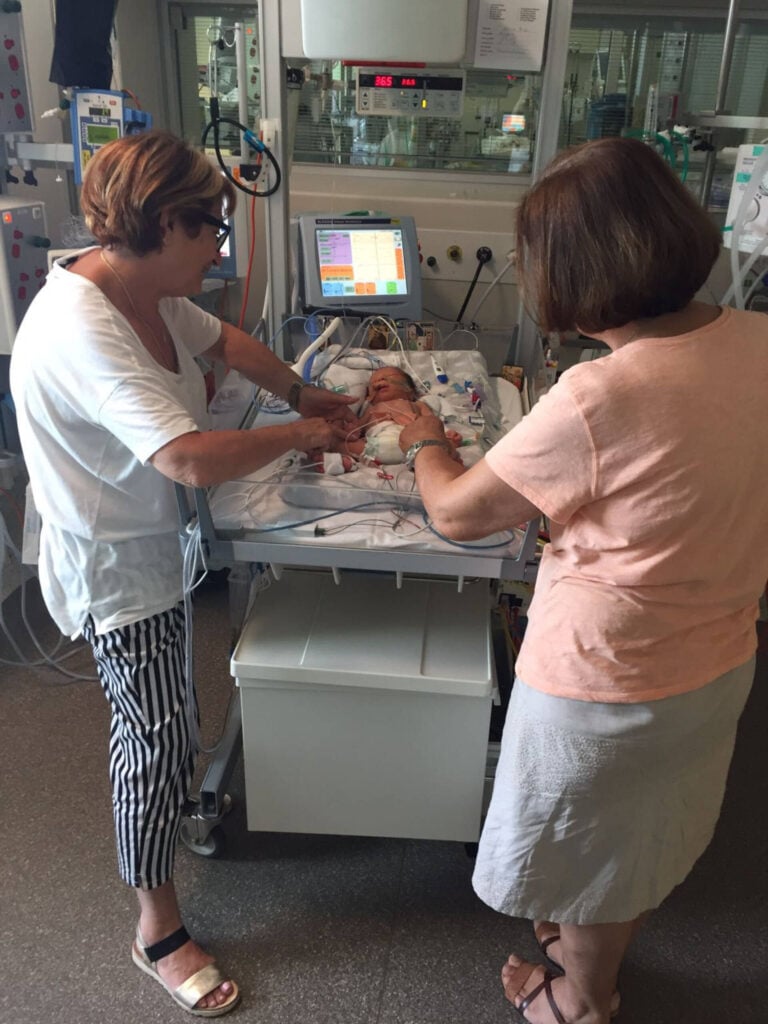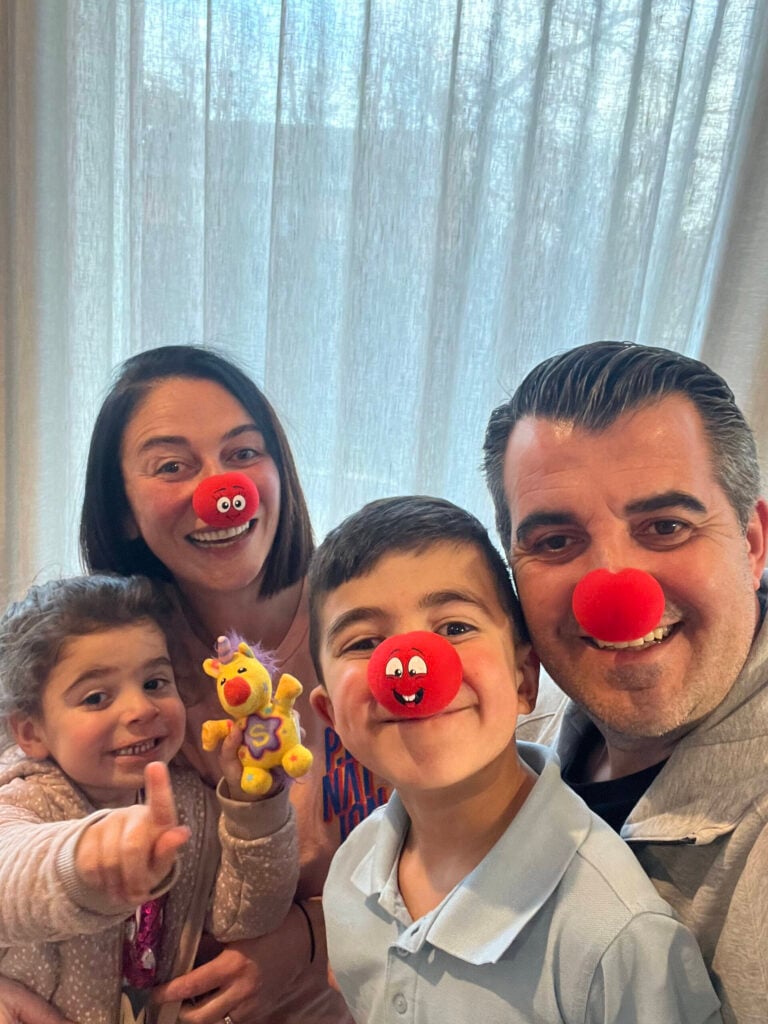In January 2017, Nick Xerakias and his wife Elena returned from two weeks in hospital to a room decorated for their baby boy.
But instead of welcoming him home, they were preparing for his funeral.
Their newborn son, Angelo, had died at just two weeks old from a neonatal condition.
Like many bereaved parents, they were in shock but a neighbour who had also lost a child suggested they contact Sands and Red Nose Australia.
Both Sands and Red Nose were founded by bereaved parents who wanted to make sure families received support following the death of a baby. While Red Nose offered professional counselling services, the Sands model of care was grounded in peer support. The two organisations later merged in 2020.
“We had no idea how to navigate it. I think we were just numb at that point,” Nick told Neos Kosmos.
“Yes, we had support from family and friends, but it’s very different when you’re speaking with someone who’s been through the same loss.
I often say you speak the same language because you’ve suffered that pain. Those support groups were critical in making us feel that what we were experiencing was normal.”

Over time, Nick became more deeply involved. He joined the Sands board, later the Red Nose Board of Directors in December 2020, and was appointed Chairperson in 2023.
“Giving my time to help others who will unfortunately go through the death of a baby or child is my way of giving back, not just in memory of Angelo, but in memory of all babies and children whose lives have been lost, including those never born due to miscarriage,” he said.
Red Nose offers a 24/7, 365-day bereavement line for parents at any stage of grief.
“Whether it’s 2am or 2pm, you can call and speak to someone,” Nick said. “It’s not just when you initially lose your baby, it can be 30 years later.
In one of my support groups in 2020, there was a man aged between 75 and 80 who had lost his child 60 years earlier and was only dealing with the grief then.
It shows that grief never goes away. You live with it forever. It’s a club no one wants to join, because joining means you’ve lost a baby or child.”
Neos Kosmos has previously spoken with another Greek Australian bereaved parent at Red Nose, Fotini Koklas, who observed that the Greek community — particularly older generations — rarely speak openly about child loss.

Read More: “It’s OK to grieve your baby” – Fotini Koklas is supporting bereaved parents
Nick has noticed similar attitudes in his own community.
“I remember a lot of our older family friends and my parents’ friends saying, ‘It’s fine. You’ll have another baby’,” he said.
“At the time I thought, that’s not what I want to hear. I had a baby, and he’s not with us now. I may have another baby, but I’ve lost my baby.”
It took him time to understand that for his parents’ generation, now in their 70s and 80s, infant deaths were far more common, sometimes from illnesses as routine as the flu, and were often treated as a part of life.
“It was normalised,” Nick said.
“They see it differently because they’ve lived through it with siblings who passed away at a very young age.”

His message to the community is clear: the pain never goes away.
“Parents want to talk about the baby they lost. That baby will always be part of their life and family. Even if they have other children, they will always have that child. It’s okay to ask how they feel, and to talk about their baby. One of the worst things is to not acknowledge that the baby existed. They may not be with us, but they did exist.”
Nick offers simple, meaningful ways to keep a baby’s memory alive:
– Acknowledge the baby’s birthday or the anniversary of their passing each year.
– Check in with the parents months or even years later, as grief can deepen over time.
– Understand that silence doesn’t mean the pain has gone away.
– Regularly mention the baby or child to help keep their memory alive.
– Encourage parents to display photos, just as they would for a living child.

– Involve siblings in memorial traditions, such as birthdays or special anniversaries.
This is what Nick and Elena have done with their two children born after Angelo, telling them about their older brother and visiting his grave together to leave small toys.
As Red Nose Day on 28 August marks its 37th year, the organisation continues its mission, having reduced sudden infant death syndrome (SIDS) in Australia by 80 per cent through education, support, and more than $18 million in lifesaving research.
Yet the work is far from over, one in four pregnancies ends in miscarriage, and around 3,000 babies and young children still die suddenly and unexpectedly each year.
This year’s campaign, Red, Set, Go, invites people to walk or run 3km every day in August to raise funds. More information about the challenge and Red Nose Australia’s services can be found on their website.